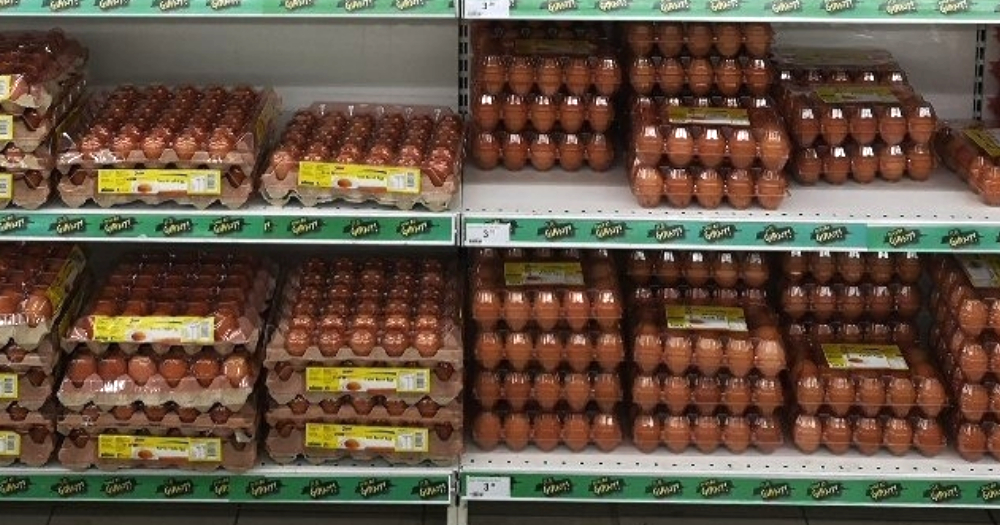Follow us on Telegram for the latest updates: https://t.me/mothershipsg
Singapore will soon have a fourth egg farm, alongside the existing three — Seng Choon Farm, Chew's Agriculture and N&N Agriculture.
360 million eggs
Local company ISE Foods Holdings (IFH), announced on Oct. 25 that it had received in-principle approval from the Singapore Food Agency (SFA) to construct a commercial egg farm on about 10ha of land in Singapore.
The facility will comprise a commercial egg farm, a Day-Old-Chick (DOC) hatchery, a parent stock pullet farm, and a parent stock layer farm, IFH's press release stated.
The commercial egg farm and DOC hatchery will be located in Lim Chu Kang, while the other specialised facilities will be situated at Sungei Tengah and Tuas.
When fully operational, the integrated facility will be able to produce 360 million eggs and up to five million DOCs annually.
This means it can push up the capacity for Singapore's egg industry to meet the local demand for eggs, from about 30 per cent to 50 per cent.
The egg farm will be developed in phases from the first quarter of 2023, and will commence operations in 2024.
To build this facility, IFH is collaborating with ISE Japan, the top egg producer in Japan and one of the largest in the world, according to the press release.
Using smart technology
The egg farm will utilise smart technology in the form of Artificial Intelligence (AI), Internet-of-Things (IoT) and visual analytics inspection.
It will be collaborating with the National University of Singapore (NUS) to develop "unique state-of-the-art technology" to create a live round-the-clock remote monitoring system.
This will help "improve the workplace environment", IFH stated.
AI image recognition technology will also be deployed to detect any abnormalities in the hens inside the farmhouse, without the need for human intervention.
Not only will such technology "create a better environment inside the farmhouse", it will ensure the chickens are able to receive prompt veterinary treatment.
Using technology will also solve the issue of a manpower crunch in this industry, IFH wrote. By allowing many agricultural tasks to be automated, it will help to prioritise its manpower needs, in a traditionally labour-intensive industry.
According to IFH, the new facility will also take steps to "boost sustainability" by increasing its energy efficiency and adapting more environmentally friendly waste management.
"The focus will be on ‘zero carbon emissions’, ‘high quality fertilisers’, ‘reduced use of fossil fuels’ and ‘water recycling systems’. In addition, we are also looking at using renewable energy sources, reducing excessive electricity use through energy- efficient lighting fixtures with sensors, and natural ventilation to reduce the need for air conditioning, etc."
Top photo by Joshua Lee
If you like what you read, follow us on Facebook, Instagram, Twitter and Telegram to get the latest updates.
